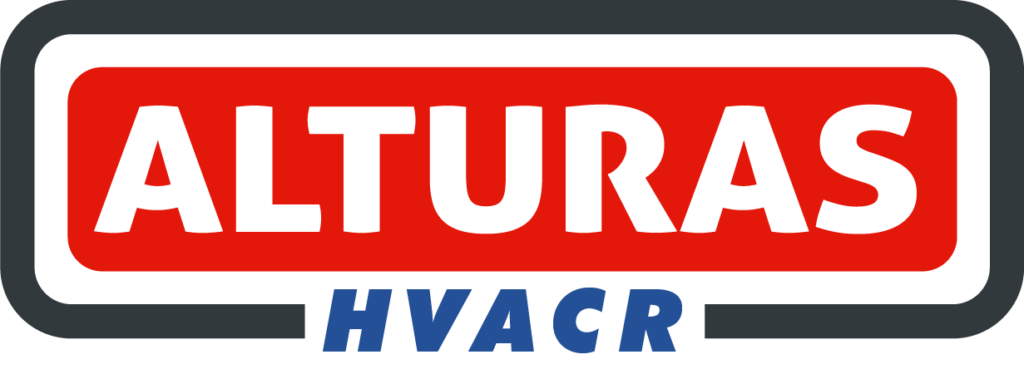As a business owner in Los Angeles, managing energy consumption is critical for reducing operating costs and staying eco-friendly. With rising energy prices and regulations focused on sustainability, ensuring your HVAC system operates efficiently is not just a cost-saving strategy but a necessity. Our comprehensive guide provides you with the best HVAC energy efficiency tips to help your Los Angeles business optimize performance while cutting down energy usage.
Why HVAC Energy Efficiency Matters in Los Angeles
Los Angeles is known for its warm climate, making air conditioning a year-round need for many businesses. An inefficient HVAC system can drive up energy costs and make your business less eco-friendly. With more companies focusing on sustainability, optimizing your HVAC system is crucial to keeping operational expenses in check and maintaining a competitive edge. Ensuring energy efficiency also helps prolong the life of your system, reducing maintenance costs and minimizing downtime.
Also Read: Energy saving tips for your HVAC system
Understanding Los Angeles’s Energy Landscape
The energy landscape in Los Angeles is shaped by high temperatures and fluctuating energy prices. The city’s reliance on air conditioning means that businesses often face steep utility bills, especially during peak summer months. Furthermore, California’s state regulations encourage energy efficiency and renewable energy use, making it even more important for businesses to adopt efficient HVAC practices. By reducing your energy footprint, you’re not only lowering expenses but also contributing to a cleaner environment, which is something many Los Angeles consumers value.
HVAC Energy Efficiency Tips for Los Angeles Businesses
Improving HVAC energy efficiency is key to minimizing operational costs and environmental impact. Here are 10 practical tips that can make a difference for your business:
1. Upgrade to Energy-Efficient HVAC Systems
Investing in an energy-efficient HVAC system can significantly reduce your energy consumption. Modern systems are designed to use less electricity while providing superior climate control. Look for ENERGY STAR® certified systems, which meet strict energy performance standards.
2. Implement Regular Maintenance
Routine HVAC maintenance services in Los Angeles are essential to keeping your system running efficiently. Regular check-ups prevent minor issues from becoming costly repairs and ensure optimal performance year-round. We recommend scheduling maintenance twice a year to catch any inefficiencies early.
3. Install Programmable Thermostats
A programmable thermostat allows you to control the temperature in your building more precisely, reducing energy waste. Adjust settings based on business hours to ensure the system isn’t running unnecessarily when the building is unoccupied.
4. Seal Ductwork
Leaks in your ductwork can result in significant energy losses, as cooled or heated air escapes before it reaches its intended destination. Have a professional inspect and seal your ductwork to ensure your system is operating at maximum efficiency.
5. Use Zoned HVAC Systems
Zoning your HVAC system allows you to control different areas of your building independently. By only heating or cooling occupied spaces, you can dramatically reduce energy consumption and save on energy bills.
6. Clean or Replace Filters Regularly
Dirty filters force your HVAC system to work harder, leading to higher energy consumption. Replace filters at least every three months to ensure air flows smoothly and efficiently through your system. This simple task can improve air quality and lower energy use.
7. Optimize Ventilation
Proper ventilation is key to maintaining indoor air quality and system efficiency. Use energy recovery ventilators (ERVs) or heat recovery ventilators (HRVs) to maintain fresh airflow while minimizing energy loss.
8. Install Ceiling Fans
Ceiling fans can complement your HVAC system by circulating air more efficiently throughout your building. In the summer, fans help disperse cool air, while in the winter, they push warm air downward, reducing the need for excessive HVAC use.
9. Insulate Your Building
Proper insulation prevents hot or cold air from escaping, allowing your HVAC system to maintain desired temperatures more efficiently. Upgrade your insulation, especially in older buildings, to reduce the workload on your HVAC system.
10. Conduct Energy Audits
An energy audit evaluates your business’s overall energy consumption and identifies areas for improvement. By pinpointing inefficiencies, you can take targeted actions to reduce HVAC-related energy waste. Consider working with a professional HVAC company in Los Angeles to carry out these audits.
11. Utilize Energy-Efficient Lighting
Energy-efficient lighting, such as LED bulbs, can reduce the overall heat load in your building, meaning your HVAC system won’t have to work as hard to maintain a comfortable temperature. This helps decrease energy consumption and enhances overall HVAC efficiency.
12. Schedule Seasonal Tune-Ups
Scheduling seasonal tune-ups before peak cooling or heating seasons ensures your HVAC system runs at its best. Professional inspections can catch potential issues early, optimize performance, and prevent costly breakdowns, all while keeping energy use in check.
Challenges Faced by Los Angeles Businesses in Energy Consumption
Los Angeles businesses encounter several challenges in managing energy consumption, particularly with HVAC systems:
- High Energy Costs: California’s electricity prices are among the highest in the U.S., significantly affecting operational budgets.
- Extreme Weather: The warm climate necessitates constant air conditioning, leading to increased energy use and costs.
- Aging Infrastructure: Many businesses rely on outdated HVAC systems, which consume more energy and may require frequent repairs.
- Regulatory Compliance: Strict energy efficiency regulations demand ongoing adjustments to meet sustainability goals.
- Seasonal Demand Fluctuations: Energy needs can vary greatly with the seasons, complicating energy management and planning.
Conclusion
By implementing these HVAC energy efficiency tips, your Los Angeles business can not only save on operational costs but also contribute to a more sustainable environment. The strategies we’ve discussed—from regular maintenance to installing energy-efficient systems—are practical steps that can significantly lower energy usage. Staying on top of HVAC efficiency helps your business align with modern energy standards while keeping costs under control.
Also Read: How to Find the Best AC Installation Service in LA
FAQs
How can I make my HVAC system more energy efficient in LA?
To improve your HVAC system’s energy efficiency, schedule regular maintenance, upgrade to energy-efficient models, and ensure your ductwork is sealed properly to prevent leaks. Using programmable thermostats and zoning your system can also significantly reduce energy consumption.
How to save energy in HVAC systems in LA?
You can save energy by upgrading to a more energy-efficient system, maintaining proper insulation, and using ceiling fans to circulate air. Additionally, installing energy recovery ventilators (ERVs) will help optimize ventilation without excessive energy use.
How much energy does HVAC use in commercial buildings in LA?
HVAC systems in commercial buildings can account for up to 40% of the total energy consumption, depending on the size and efficiency of the system. Regular maintenance and adopting energy-efficient practices can significantly reduce this figure.

